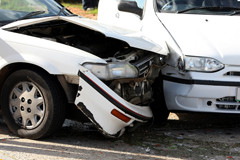Harvard Health Blog
Doctor’s warning may prompt some to give up driving

In a car culture like ours, giving up the car keys can be a wrenching decision. Some see it as a loss of independence. For others, especially those who live in areas with poor public transportation, not driving makes it difficult to shop for groceries or see friends. But the fact is that some older people need to make that decision. Pleas from family members can sometimes do the trick. A special article in this week’s New England Journal of Medicine suggests that advice from a doctor can also help people who shouldn’t be behind the wheel any longer stop driving.
A Canadian team looked at the health records of more than 100,000 men and women who had been warned by a doctor that they were potentially unfit to drive. Their rate of auto accidents was 45% lower in the year after the warning than in the three years before it. The researchers couldn’t tell whether this was because the people drove less after the warning, or drove more carefully.
There was a downside to the advice, though. People who received a “stop driving” warning were more likely to have been treated afterward for depression, and some stopped seeing the doctor who gave the warning.
Who should stop?
A big question that the NEJM article can’t answer is: Who should get a warning about driving?
There are no federal guidelines regarding who can drive. This has always been left up to each state. Rules about reporting potentially impaired drivers differ from state to state, too. Here are some warning signs from AARP indicating that you or someone you know should limit their driving or stop altogether:
- Almost crashing, with frequent “close calls”
- Finding dents and scrapes on the car, fences, mailboxes, garage doors, curbs, etc.
- Getting lost, especially in familiar locations
- Having trouble seeing or following traffic signals, road signs, and pavement markings
- Having trouble moving your foot from the gas to the brake pedal, or confusing the two pedals
(You can read the full list in the AARP article “10 Signs That it’s Time to Limit or Stop Driving“)
Driver safety
No matter what your situation or age, there are things you can do to decrease your risk of a car crash.
Eliminate blind spots. Take time before you drive to make sure your rear-view and side mirrors are adjusted to minimize blind spots. Whenever you change lanes, check the mirrors and glance back quickly to be sure no car is hiding in a blind spot.
Be honest about how well you can see. If your vision is even a little blurry, get it checked. If you need glasses or contacts, always wear them when driving.
Don’t accept dozing off at the wheel as just being tired. If you are often drowsy and fall asleep easily during the day, you may have sleep apnea. (Loud snoring with breath-holding and gasps in between is another clue.) Talk with your doctor about that possibility. Avoid long periods of driving after dark or after a big meal. If you feel drowsy while driving, find a safe spot to pull off the road and take a nap. Even 15 to 20 minutes can make a big difference in your alertness.
If you take medications that make you sleepy, consider changing the timing. If you know you will need to drive at certain times, adjust your medicine schedule so that any drowsiness wears off before you drive.
Be honest with your doctor. He or she wants to help keep you safe and not hurt others. In most situations, your doctor can’t stop you from driving. In fact, there’s no way to enforce a doctor’s advice not to drive. But share with your doctor any concerns you have about near misses on the road. That may lead to some advice that can help you be a safer driver. If you are a family member worried about the driving skills of a parent or other relative, go with him or her to the next doctor visit to discuss driving.
Sadly, many people finally stop driving after they’ve crashed, or hurt someone. This is definitely a situation where “better safe than sorry” should rule.
About the Author

Howard E. LeWine, MD, Chief Medical Editor, Harvard Health Publishing; Editorial Advisory Board Member, Harvard Health Publishing
Disclaimer:
As a service to our readers, Harvard Health Publishing provides access to our library of archived content. Please note the date of last review or update on all articles.
No content on this site, regardless of date, should ever be used as a substitute for direct medical advice from your doctor or other qualified clinician.












